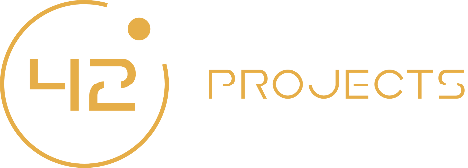🖥️ Ionic app programming
App development with Ionic is an innovative method for creating cross-platform mobile apps. The Ionic Framework enables the development of powerful, native-like apps with HTML, CSS and Typescript / Javascript. This approach is particularly advantageous for companies that want to extend their reach to different operating systems such as iOS and Android without having to maintain separate code bases.
👉 App development with the Ionic Framework: For iOS and Android apps
Cross-platform compatibility
Ionic enables the development of apps that work seamlessly on different platforms such as iOS, Android and the web without having to develop separate code for each platform. This saves time and resources.
Use of web technologies (Angular)
Ionic is based on well-known web technologies such as HTML, CSS and JavaScript / Typescript. By integrating Angular into Ionic, our customers also enjoy the benefits of Angular. This brings structure and efficiency to the development process right from the start.
Prefabricated UI components and plugins
Ionic offers a wide range of ready-made UI components and plugins. These components are both visually appealing and functional, which improves the user experience and speeds up development. In addition, the integration of plugins facilitates access to device functions and extended capabilities, which increases the functionality of the apps.
⭐ App development with Ionic from a professional
Consulting
With us, you will be guided through the entire app development process to ensure that your specific needs and requirements are met. This initially involves a detailed analysis of the project objectives, target group and desired functionalities.
Cross-platform development
As a rule, both an Ios and an Android are required by the customer. Our agile development process therefore takes place in close cooperation with the customer to ensure efficient and flexible project implementation.
Maintenance of apps
Once your app has been successfully developed, we also provide comprehensive maintenance and support services to ensure that your app functions smoothly.
🌐 We develop individual app solutions
Mobile apps (iOS and Android)
Progressive Web Apps (PWAs)
Desktop applications (with Electron)
E-commerce apps
Portals
Platforms
👨🏼💻 Our app development process
01
Get an overview
Everyone thinks differently. Therefore, it is very important for us to understand your request with all related requirements before we take the next step. Classic question-and-answer-game.
Methodology & Technology:
02
Research & Planning
We then research the current state of affairs and begin a detailed requirement analysis and IT architecture planning as a basis for preparing the offer.
Methodology & Technology:
03
Design & Prototyping
After you have been convinced by our offer, we usually start (in regular exchange with you) with the creation of a design concept as well as a clickable prototype.
Methodology & Technology:
04
Implementation
Now comes our favorite part. After approving the design and choosing the technologies to be used, we get to work on the implementation and develop your product iteratively.
Methodology & Technology:
05
Testing & Bugfixing
Before we let real users loose on the application, we go hunting for bugs and fix them right away. If desired, we also perform stress and performance tests.
Methodology & Technology:
06
Out into the wide world!
The release day is probably your favorite part. We make the application available to real users and take over the care and maintenance of the product directly afterwards.
Methodology & Technology:
🛠️ Verwendete Technologien
Your idea is our project.
And then – We make IT happen!
🤝 Industries with which we
work together


